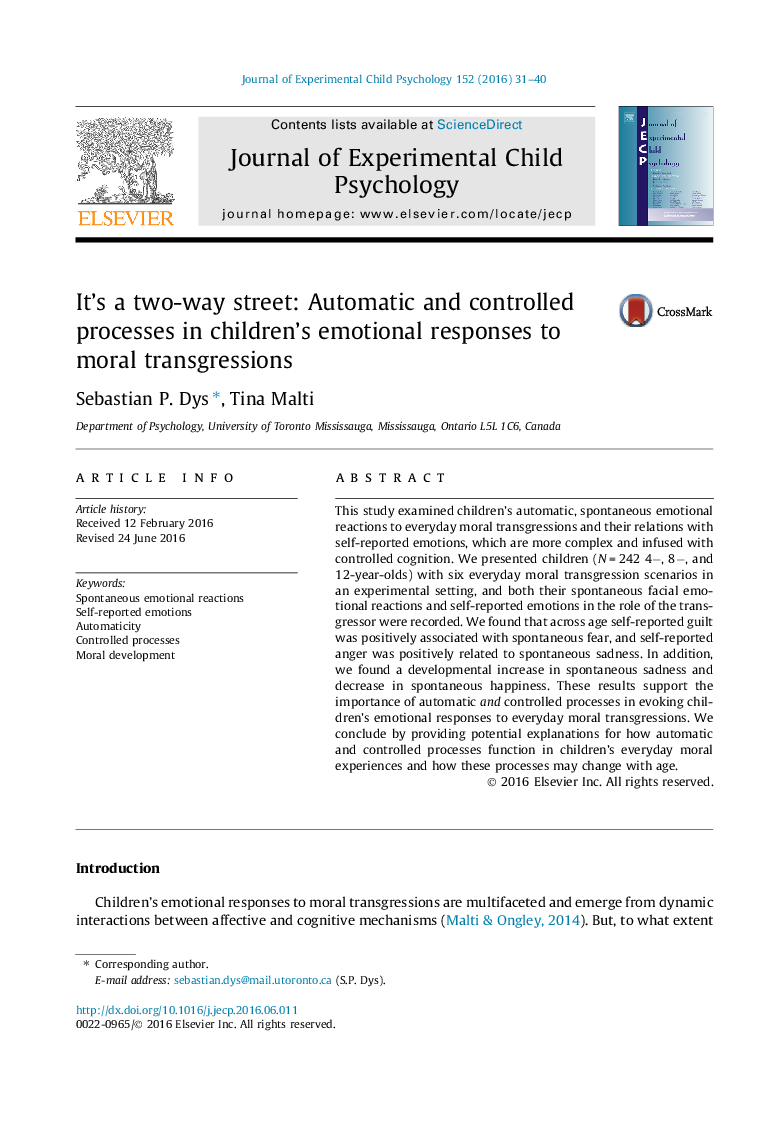| Article ID | Journal | Published Year | Pages | File Type |
|---|---|---|---|---|
| 917845 | Journal of Experimental Child Psychology | 2016 | 10 Pages |
•Examined links between children's self-reported (SR) and spontaneous (SP) emotions.•Two of four SR emotions linked to SP facial expressions.•Across ages, SR guilt was related to SP fear, and SR anger was related to SP sadness.•With age, SP happiness decreased while SP sadness increased.
This study examined children’s automatic, spontaneous emotional reactions to everyday moral transgressions and their relations with self-reported emotions, which are more complex and infused with controlled cognition. We presented children (N = 242 4−, 8−, and 12-year-olds) with six everyday moral transgression scenarios in an experimental setting, and both their spontaneous facial emotional reactions and self-reported emotions in the role of the transgressor were recorded. We found that across age self-reported guilt was positively associated with spontaneous fear, and self-reported anger was positively related to spontaneous sadness. In addition, we found a developmental increase in spontaneous sadness and decrease in spontaneous happiness. These results support the importance of automatic and controlled processes in evoking children’s emotional responses to everyday moral transgressions. We conclude by providing potential explanations for how automatic and controlled processes function in children’s everyday moral experiences and how these processes may change with age.
